A Pride Month Reading List
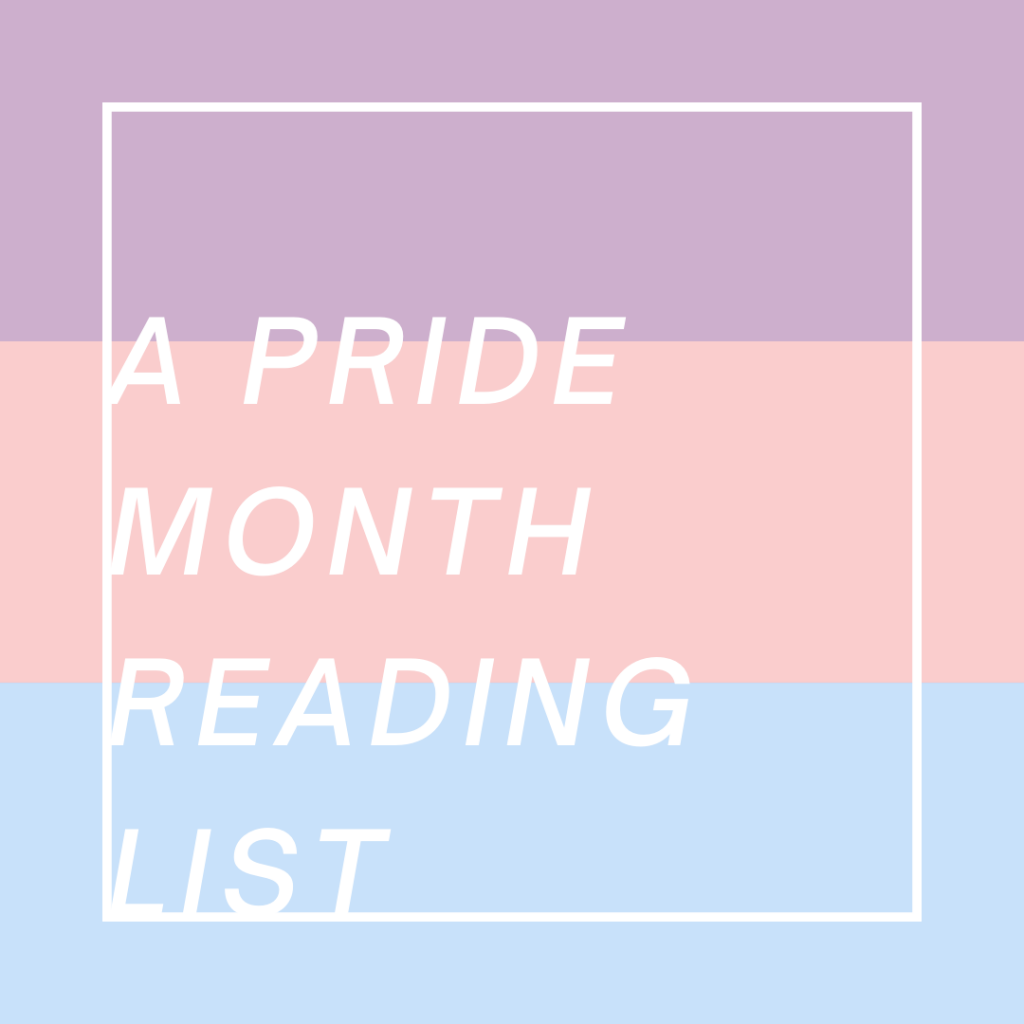
June is Pride Month: a celebration of the LGBTQ+ community and its members, yes, but also a resounding cry for radical liberation. Pride Month began as a commemoration of the Stonewall Riots and the revolutionaries involved in them, including Sylvia Rivera and Marsha P. Johnson, both trans women of colour. Our celebration of Pride Month would be incomplete if we didn’t recognize and honour their contribution, as well as the contribution of living trans women, QTBIPOC, and other traditionally underrepresented members of the LGBTQ+ community.
Book*hug is honoured to have published a range of fiction, nonfiction, and poetry by LGBTQ+ authors. Today’s selection of books is far from representative; we encourage you to explore our online shop, or your local independent bookstore, for more equally brilliant books by members of the LGBTQ+ community.
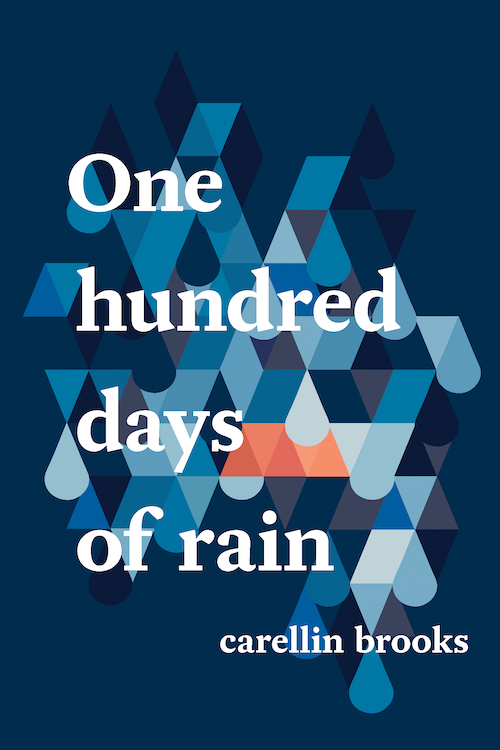
One Hundred Days of Rain by Carellin Brooks
Carellin Brooks’ One Hundred Days of Rain enumerates an unnamed narrator’s encounters with that most quotidian of subjects: rain.
Mourning her recent disastrous breakup, the narrator must rebuild a life from the bottom up, and is caught between the two poles of weather and mood. The narrator is not alone: whether riding the bus with her small child, searching for an apartment to rent, or merely calculating out the cost of meager lunches, the world forever intrudes, as both a comfort and a torment. One Hundred Days of Rain is an acknowledgement of the ongoing weight of sadness, the texture of it, and its composition—the weight of all the stupid little things a person deals with when they’re rebuilding.
“Is there a worse city in which to suffer a vindictive, litigated break up than unrelentingly sodden Vancouver? In these one hundred intimate chapters, Carellin Brooks has convinced me no,” writes Caroline Adderson, author of Ellen in Pieces. “Her forbearing heroine bikes through torrents, dodges puddles, keeps moving through bitterness and weather. Nobody, not even the rain, has such nerve.”
One Hundred Days of Rain won both the Publishing Triangle’s 2016 Edmund White Debut Fiction Award and the 2016 ReLit Award for Fiction.
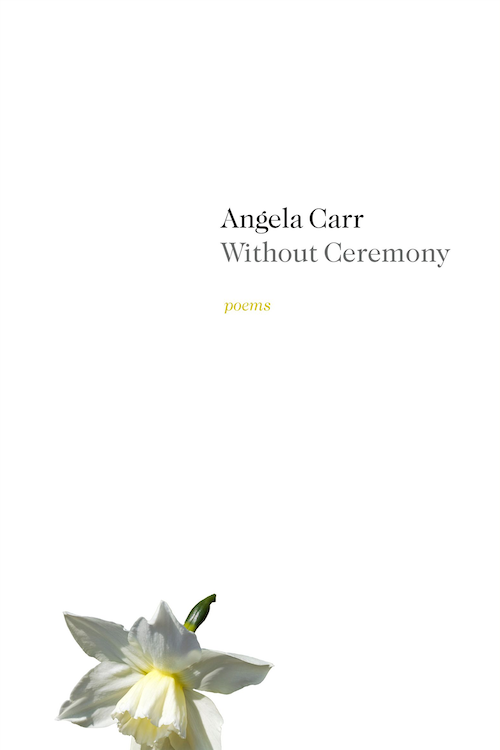
Without Ceremony by Angela Carr
Centred on the everyday, and crafted without preamble or pretension, the poems in Without Ceremony are a literary pastiche—a thematic mosaic not unlike tracks on an album. Amidst a timeless cast of characters from Lucretius and Eva Hesse to Joan Mitchell and St. Augustine, Carr illuminates what it means to truly know something and questions how certain knowledge becomes valued over others. Without Ceremony spotlights the gendered division of ideas and the inherent strength of language to harm and oppress, as well as elevate. Within these pages, passing encounters become rare spectacles, and the ordinary, without ambitions of grandeur or ceremony, is celebrated, making Carr’s new collection a clarifying elixir for our time.
“Carr creates a field of verb-rich arriving where confessional exasperations are tried and transformed in pleasurable abstraction,” writes Stacy Szymaszek. “She summons other women poets and artists (Hesse, Dickinson, Mitchell) not to revere them but to create a queer chorus of those who can bring us to see that what seems holy is simply ordinary.”
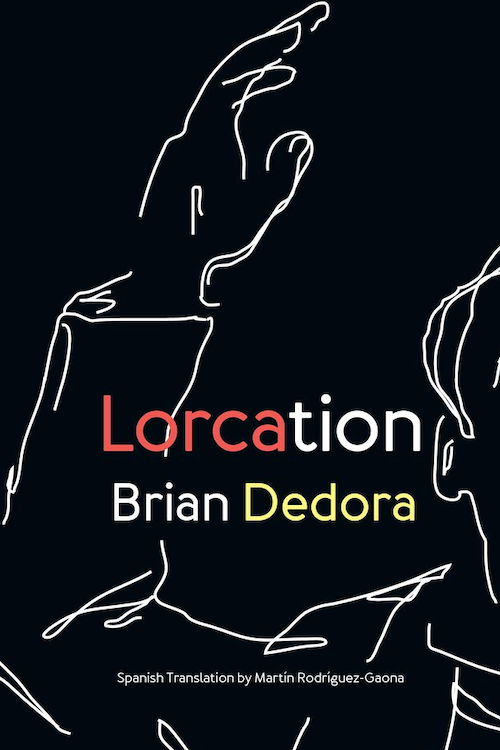
Lorcation by Brian Dedora, Spanish Translation by Martín Rodríguez-Gaona
When acclaimed Canadian writer Brian Dedora travelled to Spain in 2012 to explore “Lorca’s Granada,” he experienced an unexpected transformation that set him on a path of understanding: of the life and work of Federico Garcia Lorca, of the basic elements in common between the Spanish writer’s life and his own, and of the tragic grandeur of Lorca’s death in Granada in 1936.
Presented as a bilingual English and Spanish edition (with a Spanish translation by Martín Rodríguez-Gaona), Lorcation follows Dedora’s reading and re-enactment of Lorca’s life, his writing, and his emergent awareness of his homosexuality, culminating—for Dedora—in a new understanding of Lorca’s call to attend to the living within the enigma of death.
“Exciting, moving, a gift for us, a gift for Lorca,” writes Laura García Lorca, president of the Federico García Lorca Foundation in Madrid. “Dedora traces an under-the-skin map of both poets’ physical and emotional landscapes.”
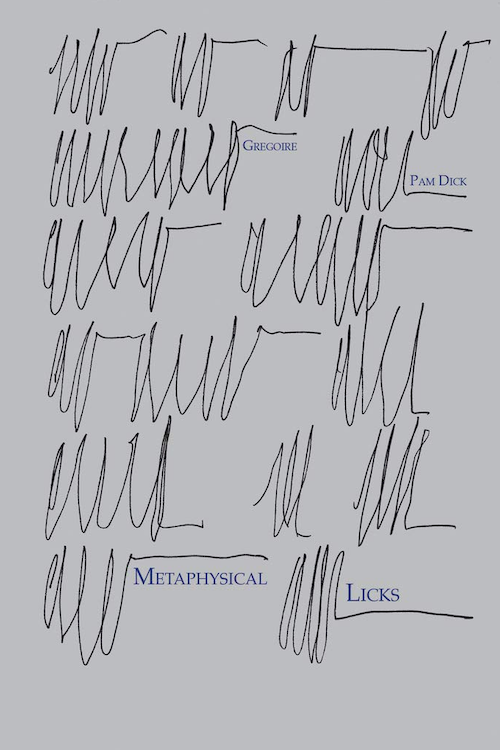
Metaphysical Licks by Gregoire Pam Dick
Gregoire Pam Dick’s Metaphysical Licks is a poetic riff on the lives and works of Austrian poet Georg Trakl and his sister, Grete. The book transposes Grete into Greta; gives her both Wittgenstein and Kafka as other brothers; and betroths her, unhappily, to Nietzsche. Dick’s playful writing mixes high and low, tragic and comic, abstract and concrete, and artifice and confession, combining girl/punk/genderqueer rebelliousness with intensely questioning thought. It composes dissonance with urban moments, narrative fragments, and philosophical remarks.
“Reading Metaphysical Licks is like seeing Kafka’s ghostwriter whump Beckett under a streetlight, dodge Punch-n-Judy at a pop machine, and beat Walty Benjamin at solitaire,” writes Erín Moure. Wayne Koestenbaum writes, “Language has never been so smartly flayed.”
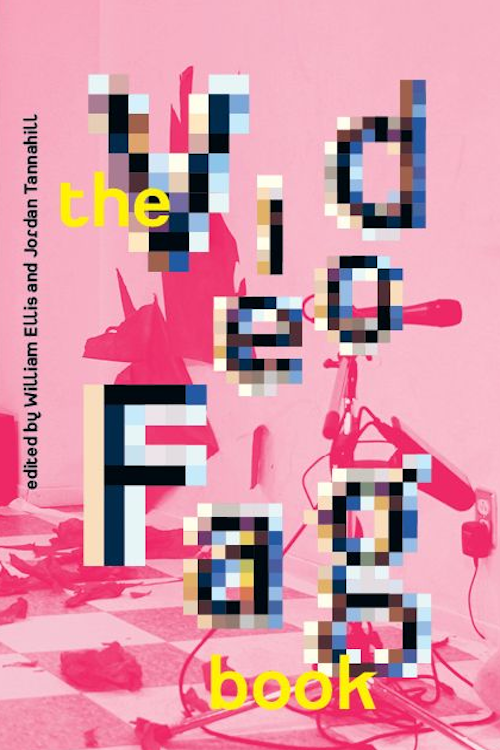
The Videofag Book, Edited by William Ellis and Jordan Tannahill
In October 2012, lovers William Ellis and Jordan Tannahill moved into a former barbershop in Toronto’s Kensington Market neighbourhood and turned it into an art space called Videofag. Over the next four years, Videofag became a hub for counterculture in the city, hosting a litany of performances, screenings, parties, exhibitions, and all manner of queer fuckery. The Videofag Book is a chronicle of those four years. The Toronto Star calls it “[a] cacophonous, eclectic, and fitting homage to one of the most important cultural incubators in recent Toronto history.”
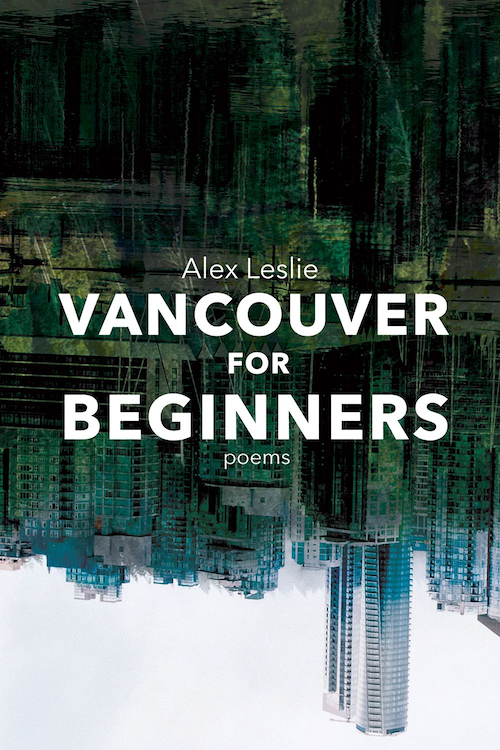
Vancouver for Beginners by Alex Leslie
Vancouver for Beginners is a ghost story, an elegy, and a love song for a city that is both indecipherable and a microcosm of a world on fire. In this collection, the nostalgia of place is dissected through the mapping of a city where readers are led past surrealist development proposals, post-apocalyptic postcards, childhood landmarks long-gone, and a developer who paces at the city’s edge, shoring it up with aquariums. Vancouver’s forests are subsumed by parks, its buildings sink and morph, and the ocean glints, elusive, in the background. Memory traps and tourist traps reveal themselves.
Ayelet Tsabari calls Vancouver for Beginners “ingenious, mesmerizing and gorgeously written.” And author Jordan Scott writes that “Alex Leslie beautifully contributes to the long poetic tradition documenting, interrogating, and re-imagining the city of Vancouver. This is a new guidebook that refuses utopia and the erasure of traumatic history. It’s a book for after the pipelines and before the collapse but there’s still a poet here, in this place, writing the invisible and trusting us to read.” Vancouver for Beginners recently won the 2020 Lohn Foundation Prize for Poetry at the Western Canada Jewish Book Awards.
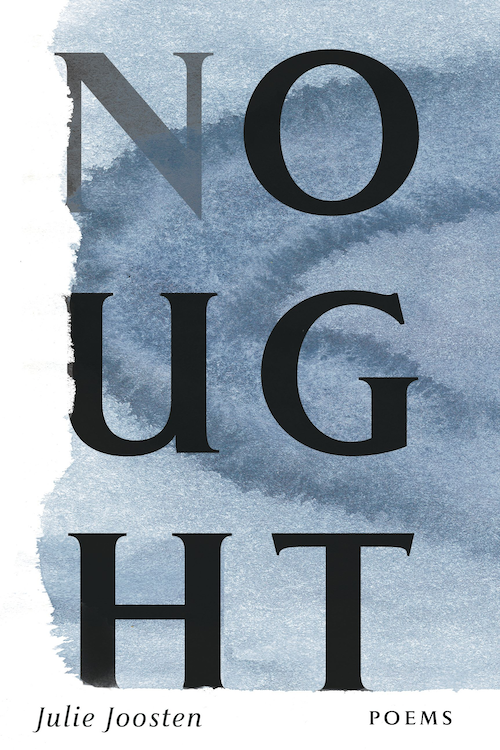
Nought by Julie Joosten
Julie Joosten’s Nought explores the intersections of body, identity, and love. The poems in this collection inhabit the unfastened “and” of capacious loves and allegiances, refusing to choose between them. Thought comes alive through the materiality of body and experience, neurology and metaphysics, entangled with sentient physicality—skin, eyes, mouths. Experience—from resistance to love and all points between—is constantly surprising and utterly enchanting.
“Joosten composes a phenomenology of care, brings me to the sill of an attentive stillness where I am free to not be myself,” writes Lisa Robertson. “It’s a little frightening and a little exhilarating.”
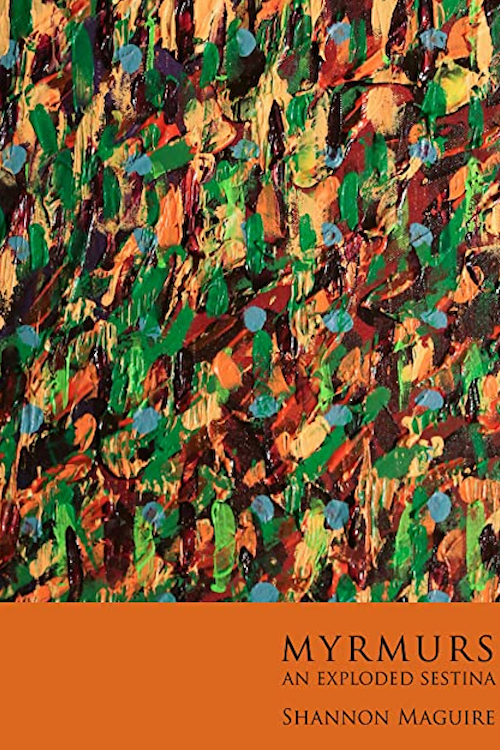
Myrmurs: An Exploded Sestina by Shannon Maguire
Connecting medieval textuality to contemporary politics and poetics, Shannon Maguire’s Myrmurs explores living systems: cities and languages as self-organizing entities; ants; interspecies entanglements; strange attachments; and neocolonialism and how to break free of it.
Adam Dickinson writes, “Shannon Maguire’s Myrmurs experiments on a culture of experimentation. The result is a diffractive study of bodies of noise—in all their queer, incorrigible biological and linguistic volumes. This extraordinary book will crawl all over you.” In a review for Canadian Literature, Michael Roberson writes that the book “[rattles] loose the politics of language and gender.”
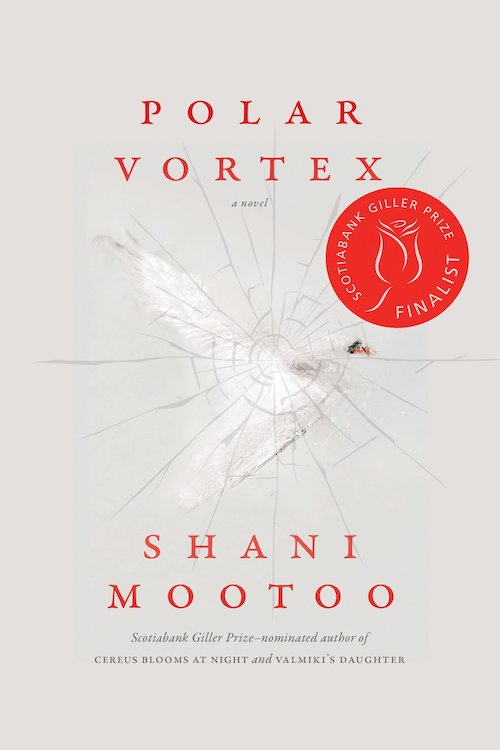
Polar Vortex by Shani Mootoo
Priya and Alexandra have moved from the city to a picturesque countryside town. What Alex doesn’t know is that, in moving, Priya is running from her past—from a fraught relationship with an old friend, Prakash, who pursued her for many years, both online and off. Time has passed, however, and Priya, confident that her ties to Prakash have been successfully severed, decides it’s once more safe to establish an online presence. In no time, Prakash finds Priya and contacts her. Impulsively, inexplicably, Priya invites him to visit her and Alex in the country, without ever having come clean with Alex about their relationship—or its tumultuous end. Prakash’s reentry into Priya’s life reveals cracks in her and Alex’s relationship and brings into question Priya’s true intentions.
Seductive and tension-filled, Polar Vortex is a story of secrets, deceptions, and revenge. It was shortlisted for the 2020 Scotiabank Giller Prize and the inaugural Caribbean Readers’ Award for Best Adult Novel. Joe Meno writes that “the book is an intimate and starkly honest examination of the complexities of sexual identity, lust, shame, regret, and how we, no matter where we come from or how we identify, are at our most complicated when it comes to the whims and failings of the human heart.”
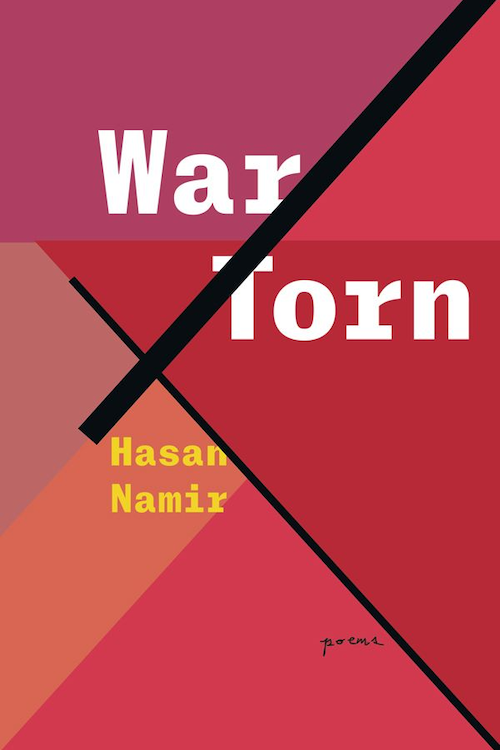
War / Torn by Hasan Namir
Hasan Namir’s War / Torn is a brazen and lyrical interrogation of religion and masculinity. Namir summons prayer, violence, and the sensuality of love, revisiting tenets of Islam and dictates of war to break the barriers between the profane and the sacred.
Daniel Zomparelli calls War / Torn “[b]eautiful, heartbreaking and an unflinching look at the terrifying reality of homophobia, war and shame.” Amber Dawn writes that the book “holds blessings and erotic provocations, fear and forgiveness, and tangled tangled love.” War / Torn was named a 2020 Stonewall Honour Book in Literature.
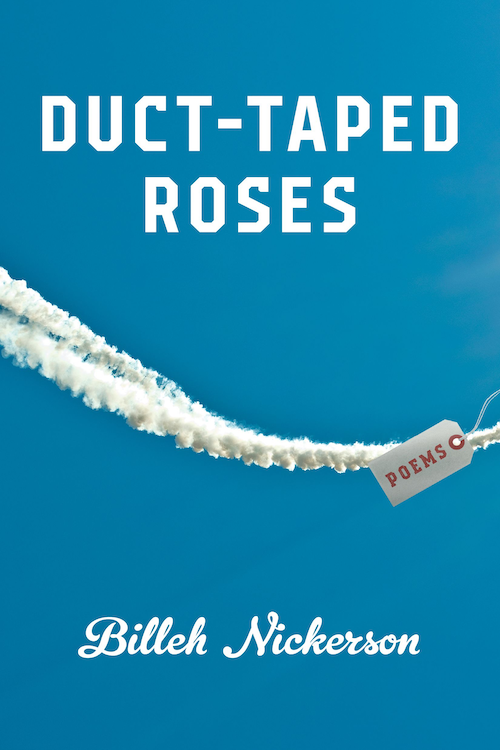
Duct-Taped Roses by Billeh Nickerson
In his latest poetry collection, Duct-Taped Roses, Billeh Nickerson shares heartbreaks and offers odes and elegies in reflections on family, community, life, and loss. As a bush pilot, Nickerson’s father would duct-tape his planes to keep them flying. The poignancy of his relationship with his father is celebrated in the long poem “Skies.” Other poems reminisce about love and the complex resiliency of gay men. Through his signature irreverence, honesty and wit, Nickerson explores what can be repaired, what must be celebrated, and what—inevitably—is lost to time.
Duct-Taped Roses is Frank O’Hara meets Lorna Crozier; David Sedaris meets Eileen Myles. “You’ve covered me with tattoos,” writes Nickerson. “I can only see with my eyes closed, can only feel when I imagine your fingers.”
“Nickerson looks up at his community from the gutter, not down from the condo loft—and therefore, as Wilde taught us, he can also see the stars,” wrote the late R.M. Vaughan, who was a dear friend of the author.
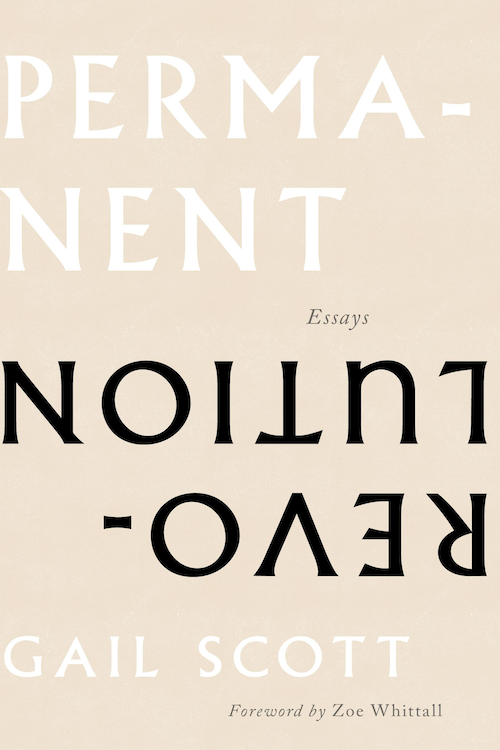
Permanent Revolution: Essays by Gail Scott
Gail Scott’s Permanent Revolution is a collection of new essays gathered alongside a recreation of her groundbreaking text, Spaces Like Stairs. These essays—bookended with a foreword by Zoe Whittall and an afterword by Christakos—provide an evolutionary snapshot of Scott’s ongoing prose experiment, which hinges the matter of writing to ongoing social upheaval. As Scott writes, “Where there is no emergency, there is likely no real experiment.”
Anne Boyer calls Permanent Revolution “[a]t once erudite and intimate,” “a vital set of meditations on difficulty and feminist art,” and “courageous, expansive, and necessary to all.” Rachel Zolf writes, “To experience Gail Scott’s écriture is to open yourself to ‘a wild, titillating, ineffable excess.’ Her ‘community of sentences’ are bodily gestures that we are folded together with, com-pli-cit. She gathers the noisy polyglossic surround of her city, ‘wilfully fuck[ing]’ the caesuras between torn and porous sentences and subjects. What seems at first the limits of articulation with proper listening becomes a beautiful threshold of social space. This book of essais, radical tries, charts Scott’s writerly formation at the nexus of Québécoise feminist fiction/theory and San Francisco queer New Narrative bodily spillage. No one writes quite like Gail Scott, and we all have so much to learn from her untameable work ‘at a juncture of politics + excess.’”

